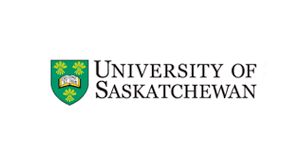University of Saskatchewan: USask team, St. John Ambulance partner on skills training for therapy dog handlers
Becoming a therapy dog team typically involves extensive vetting and testing, said Dell, but the handlers receive limited education to increase their awareness and skills in areas that would aid their visits.
“Our community-based team addresses this gap in our new course, Being an Informed Therapy Dog Handler,” said Dell, sociology professor in USask’s College of Arts and Science, Centennial Enhancement Chair in One Health and Wellness, and founder of the PAWS Your Stress Therapy Dog Program on campus.
“The content draws on the vast amount of research and first-hand experiences we have had in Saskatchewan, ranging from responding to community needs with the Humboldt Broncos bus crash through to visiting clients each week at addictions treatment facilities.”
Therapy dogs are well-behaved family pets that enjoy the company of humans, and their important community role has been increasingly recognized in recent years, said Dell. These volunteer therapy dog and human handler teams visit a range of places where individuals do not typically have access to a pet, such as in hospitals, vaccination clinics, airports, and university campuses.
The course being released today is in recognition of One Health Day. It enables Dell’s team to highlight the One Health concept of zooeyia—the positive benefits of animals to human health.
The new self-paced, eight-hour training course is available free to St. John Ambulance therapy dog handlers at: https://sites.usask.ca/online-handler-education. It is also open at no cost to anyone interested.
“This course will offer a level of preparation for new handlers that has been sorely needed, and a welcome review and reminder for the rest of us who are already in the field,” said Wendi Stoeber, an experienced therapy dog handler and contributor to the course.
The aim is to increase therapy dog handlers’ awareness and skills. The four modules address: participant diversity and offering an inclusive therapy dog experience; responding to participants’ mental health; supporting handlers’ self-care; and basics of dog body language and therapy dog care.
“We are very fortunate to work alongside dedicated educators, researchers and students at USask,” said St. John Ambulance Director of Community Services Lisa Schwann.
“This was an enormous task they undertook, and it is very much needed,” she said. “And we are proud of the essential role our St. John Ambulance therapy dog handlers had in creating the course.”
She also said that three handlers—Stephanie Peachy (officer), Jane Smith (member), and Dell (officer)—were recently inducted into the Priory of the Order of St. John at an official ceremony at Government House in Regina for their significant contributions to therapy dog research.
The course was made possible by sponsorship from handler and author Jane Smith, who shared half of the proceeds of the sale of the children’s book Murphy Mondays, funded by a HUG Grant from the Royal University Hospital (RUH) Foundation. Murphy Mondays tells the story of the first St. John Ambulance Therapy Dog Team to visit an Emergency Department in Canada.

